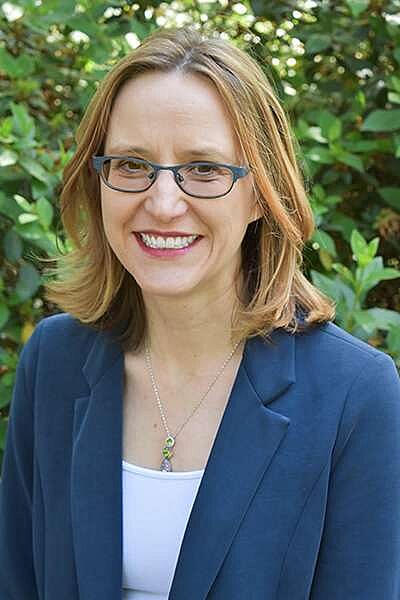Grant to help UF Health researchers boost HPV vaccinations among youngsters

A team of UF Health researchers has received a five-year, $2.9 million grant from the National Cancer Institute to evaluate simple interventions aimed at health care providers and parents that could substantially boost vaccine rates for human papillomavirus, or HPV, among 11- and 12-year-olds.
Despite national recommendations that all 11- and 12-year-olds routinely receive the HPV vaccine, only about half of teens start the vaccine series, according to Stephanie Staras, Ph.D., an associate professor in the UF College of Medicine’s department of health outcomes and biomedical informatics and the principal investigator of the grant. Moreover, a recent study in the Journal of Infectious Diseases found that only about 16% of teens were fully protected by the time they turned 13.
According to the Centers for Disease Control and Prevention, about 79 million Americans are currently infected with HPV, a common family of viruses that can infect the skin or mucous membranes of parts of the body. The virus can lead to abnormal cells on the cervix, vulva, anus, penis, mouth and throat that sometimes develop into cancer.
Staras, who is also a member of UF’s Institute for Child Health Policy and the UF Health Cancer Center, said Florida teens are particularly vulnerable.
“The state ranks fourth for HPV-related cancer diagnoses, such as cervical cancer, but 39th for starting and completing the HPV vaccine series,” she said. “There is a real need for more effective and practical ways to increase provider recommendations of the HPV vaccine to parents, and have parents be more prepared for these conversations.”
With nearly $5 million in total funding, Staras has spent the last 10 years studying provider- and parent-targeted interventions designed to increase compliance with HPV vaccine recommendations. Many providers, especially in Florida, don’t routinely recommend the vaccine for their 11- to 12-year-old patients.
She and her team of UF researchers — Carma Bylund, Ph.D.; Lindsay Thompson, M.D.; Matthew Gurka, Ph.D.; Jiang Bian, Ph.D.; and Elizabeth Shenkman, Ph.D. — will evaluate ways to increase the frequency of provider recommendations by training providers to use short scripts highlighting the routineness of vaccines or the cancer prevention benefits. The team also prepares parents of preteens for these conversations with educational text messages.
“We believe these inexpensive communications strategies can be easily implemented in a clinical setting, where they have the potential to substantially raise the rates for HPV vaccines,” Staras said.
Provider recommendations, she said, are crucial to increasing vaccine rates.
“We know from previous research that provider recommendations carry a lot of weight in persuading parents to have their children vaccinated,” Staras said. When providers recommend the vaccine to parents, HPV vaccination rates increase by 50 percent.
In 2006 (girls) and 2009 (boys), the U.S. Food and Drug Administration approved a vaccine that protects against infection with human papillomavirus and likely seven types of related cancers, including cervical cancer and oropharyngeal, or throat, cancer. HPV vaccination rates continue to increase nationwide, but still remain low.
The CDC recommends vaccination beginning at ages 11 or 12 because the HPV vaccine provides the most protection for individuals who have not yet been exposed to the virus and the immune system response is stronger at younger ages. Healthy preteens who get vaccinated will need only two doses of the vaccine given six to 12 months apart, whereas individuals ages 15 years and older need three doses given within six months.